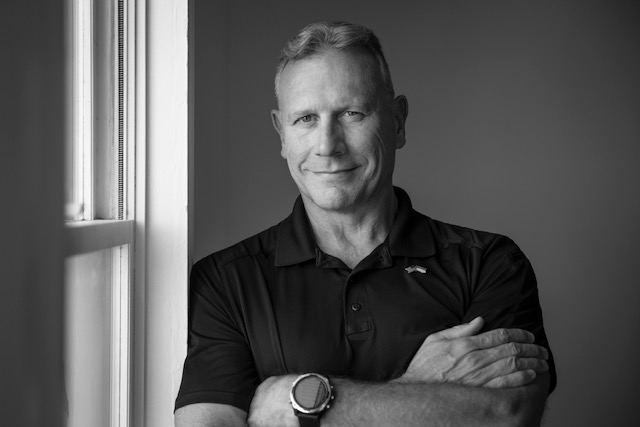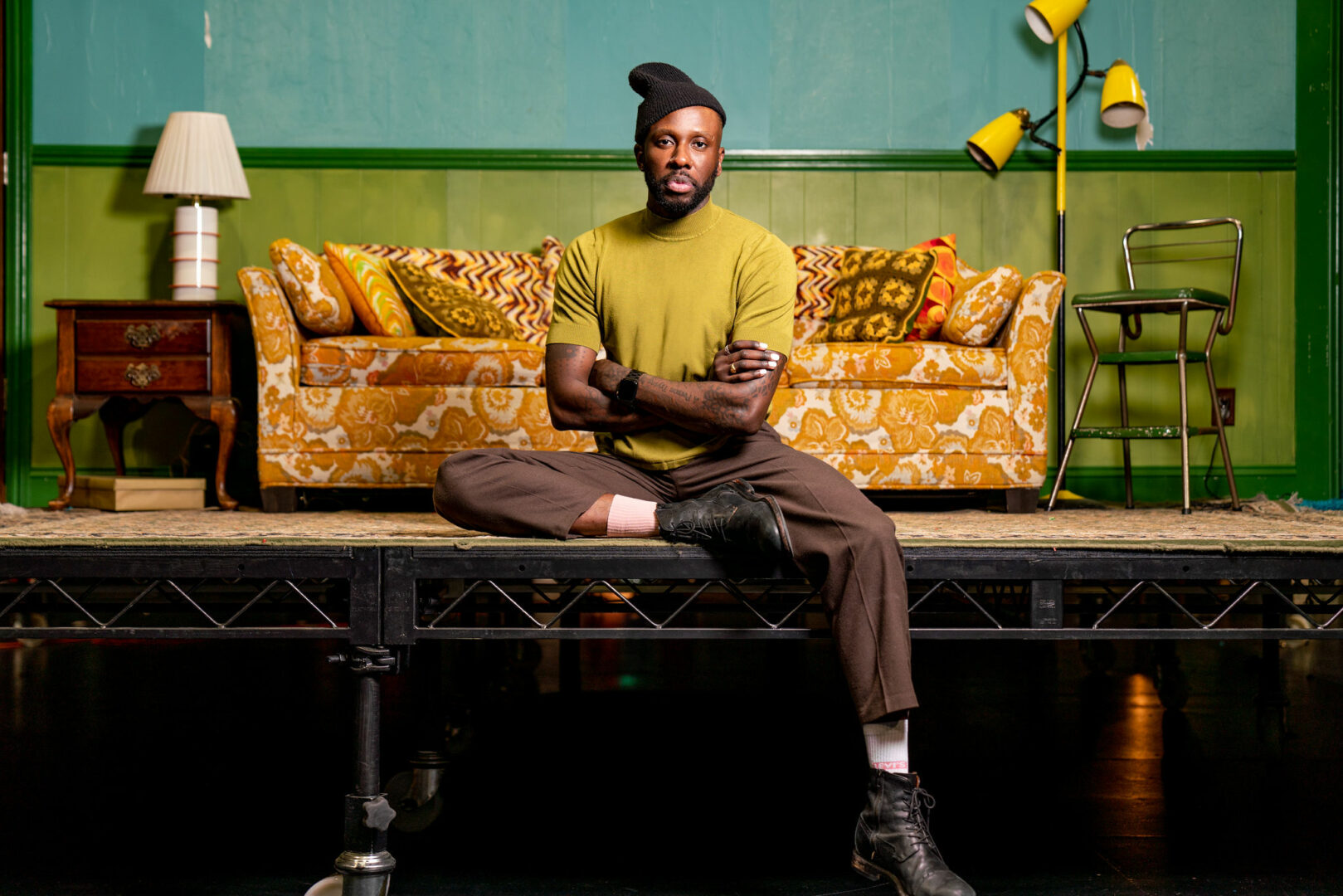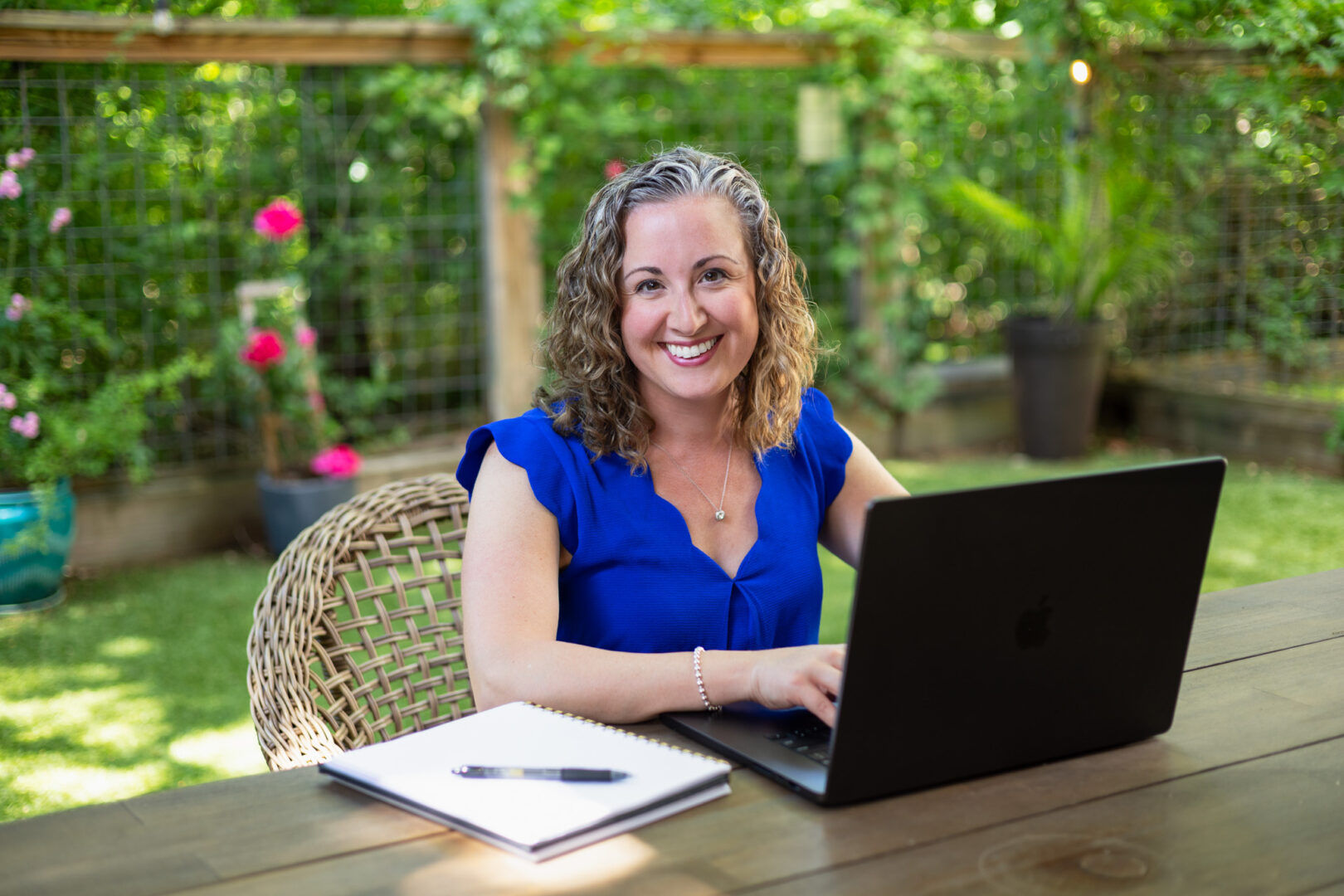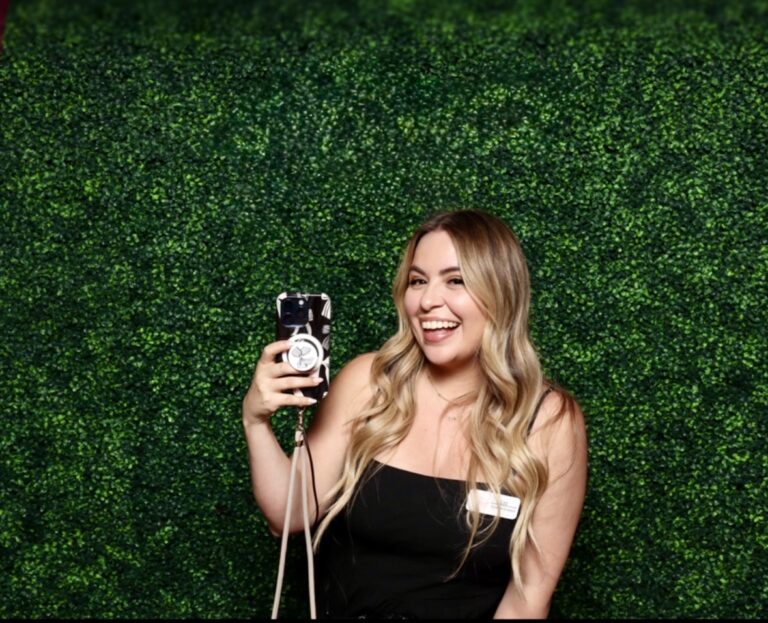We’ve got some of the most incredible artists, creatives and entrepreneurs in our community and we are constantly shocked by how prevalent imposter syndrome is. So many incredibly talented folks are haunted by self-doubt by a society that often tells you not to think too highly of yourself, but in order to have the strength to take on big challenges and make meaningful change in the world you’ve got to believe in yourself and so we wanted to create a space for conversations around overcoming imposter syndrome.
Sophia Kim

Believe it or not, I still struggle with Imposter Syndrome. I honestly don’t believe it’s necessarily a negative phenomenon that many people view it to be, but rather can have positive implications for both personal and professional development. Read more>>
Tyler Coon

I feel that I overcame imposter syndrome in my current passion project. As a Sound Healing Practitioner, and my journey to become one, I felt at times that I may not be as authentic as I should be. I do not have proper credentials and schooling for this craft, but I learned how to play the crystal bowls and the renowned Integratron, located in Landers, CA. Read more>>
Emma Rodger

Perhaps the best way I’ve learned to overcome imposter syndrome is to learn to live *with* it. I don’t know a single person who doesn’t struggle with it — even those who are experts in their field. So, it’s less about getting rid of it and more about using it as a productive tool. I have found that imposter syndrome creeps up on me more and more when I stop playing things safe when it comes to my work. Read more>>
Tarah Warner

Impostor Syndrome is the worst! It gets everyone including NASA astronauts, best selling authors, actors, and chocolatiers. I had the dream of owning my own business for most of my life but never thought I would be able to. Once I started following that dream and starting Truffles by Tarah, the anxiety and impostor syndrome reared its ugly head. Read more>>
Joanie Landau
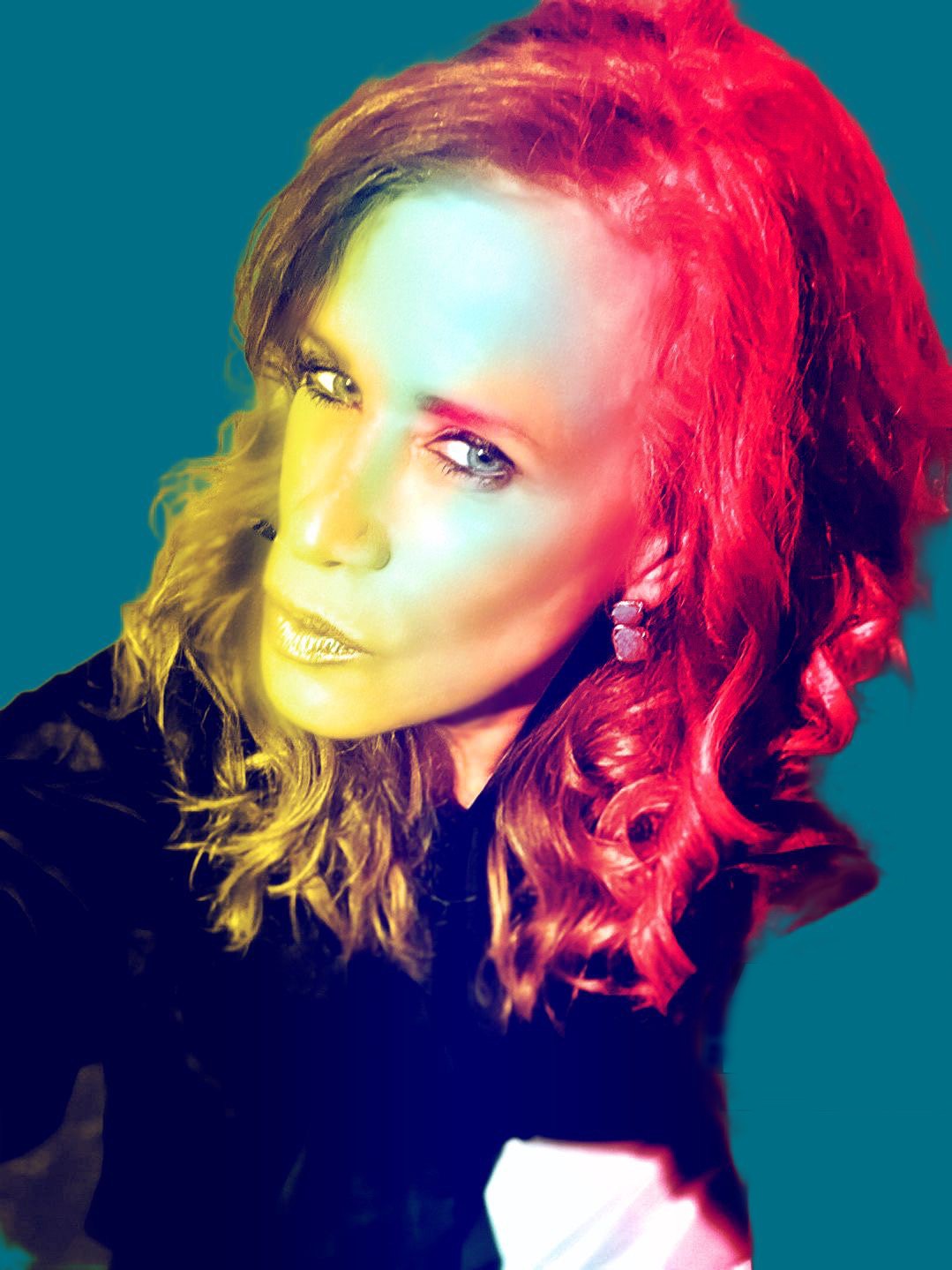
Such a great question! How pervasive this syndrome can be. For creatives, it’s incredibly hard to fight this. I was a jewelry designer for 17 years. At first I was buying components and putting a unique spin on them. However, I realized that this approach lacked true originality, given that others were also using similar components. This made me susceptible to redundancy. Read more>>
Lana Conlon

We all have been there, where we enter a new unknown territory, and we hear this little voice inside of us saying:”Who do you think you are to even consider doing something like this?” But the same time, another voice , the voice that comes from your past achievements, big or small, from love of people that know and support you, replies back with ” I am certain, what I am going to do will be helpful for others to overcome their struggles and maybe will change their lives. Read more>>
Yoshe Li
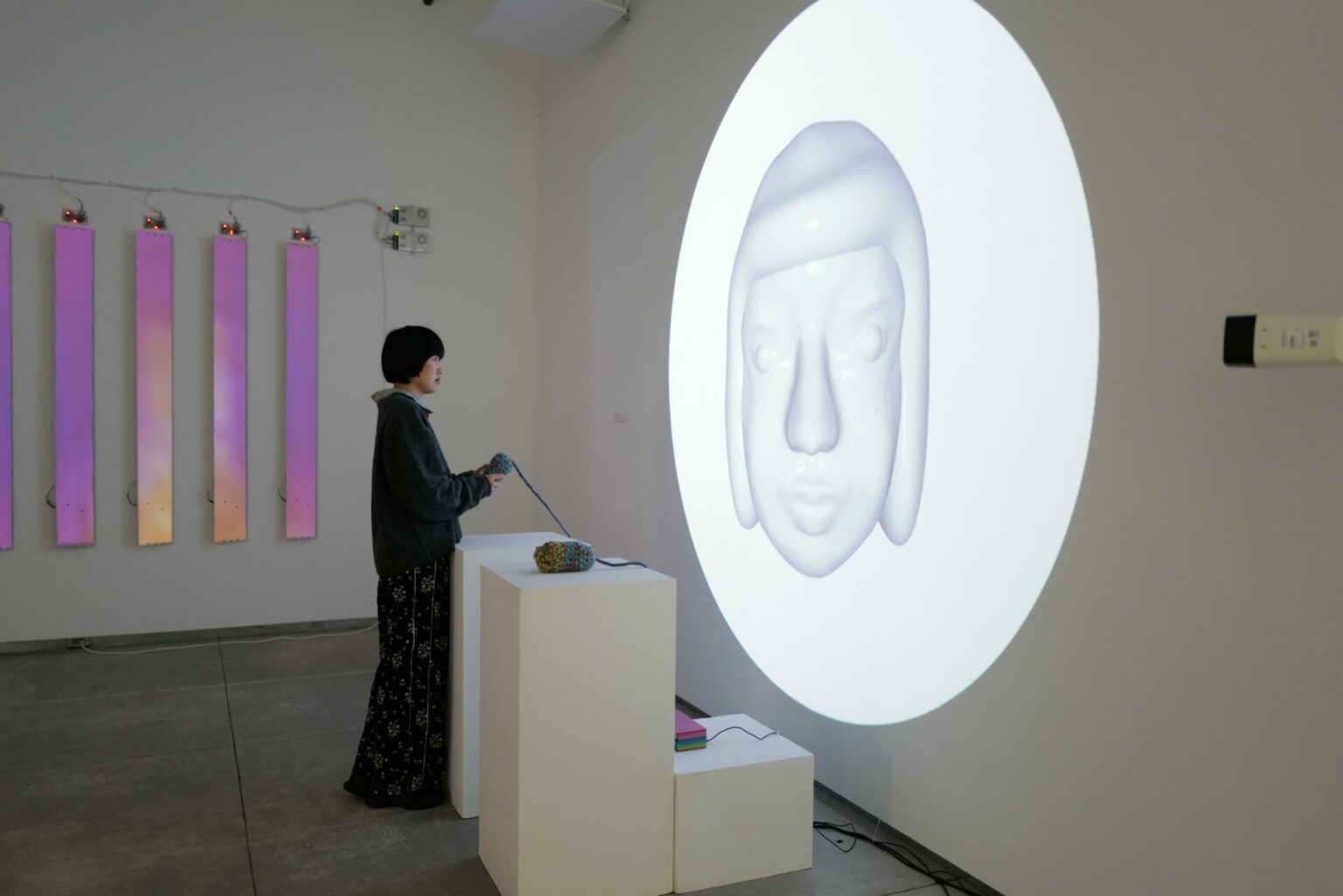
I feel that it is very easy for musicians or artists from other fields to have imposter syndrome because with social media nowadays, we often see others online with more followers, more views, and opportunities that lead them to greater places. But that doesn’t mean that we’re less worthy. We have to understand that the music industry can be very organic and each artist has their own unique career path that can’t be replicated. Read more>>
Jason Cicci

The notion of imposter syndrome has certainly crept its way into my mind, especially when writing or planning a curriculum in my work as a teaching artist. The entertainment business holds a seemingly infinite amount of awards. To see so many professionals receive praise in an endless rotation can certainly cause you to judge yourself harshly. Read more>>
Kathleen Cooke

Imposter Syndrome plagues women. If a man and a woman are asked to take on a position, often a woman will immediately begin to contemplate how unqualified she is or how she lacks the knowledge or education. Men never give it a thought. They say “yes” immediately and then hire a woman to do it for them! Read more>>
Yee Ley Lau
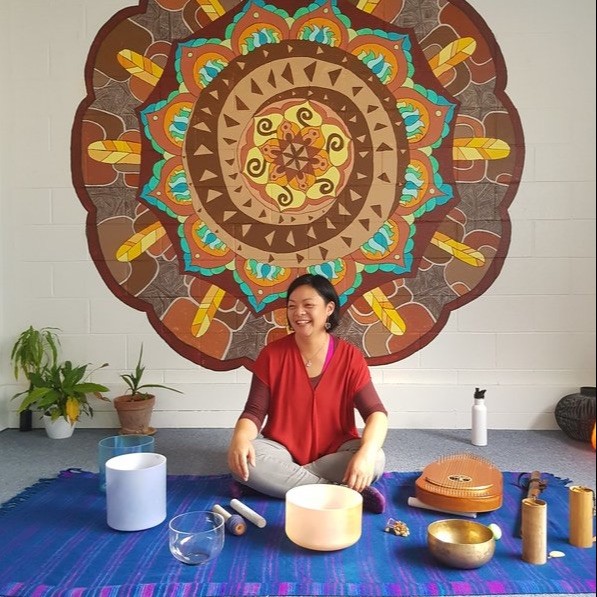
I have come to like and be friends with the imposter syndrome version of myself. Meaning I give it space for them to be acknowledged for who they be. That part of me that is in fear, doubt or having self-sabotaging-downward-spiralling commentary is allowed to exist, but is not in the driver seat anymore. Read more>>
Artésia Price

For as long as I can remember my dad would say to me, “You’re unique.” As a little girl, I never really understood the significance of his words. The older I got, the more I began to understand and embrace my uniqueness. As my dad noticed me walking in my quirks, my individuality, and my differences his words became, “Always remember you’re a Hart.” Read more>>
Kim Eshelman
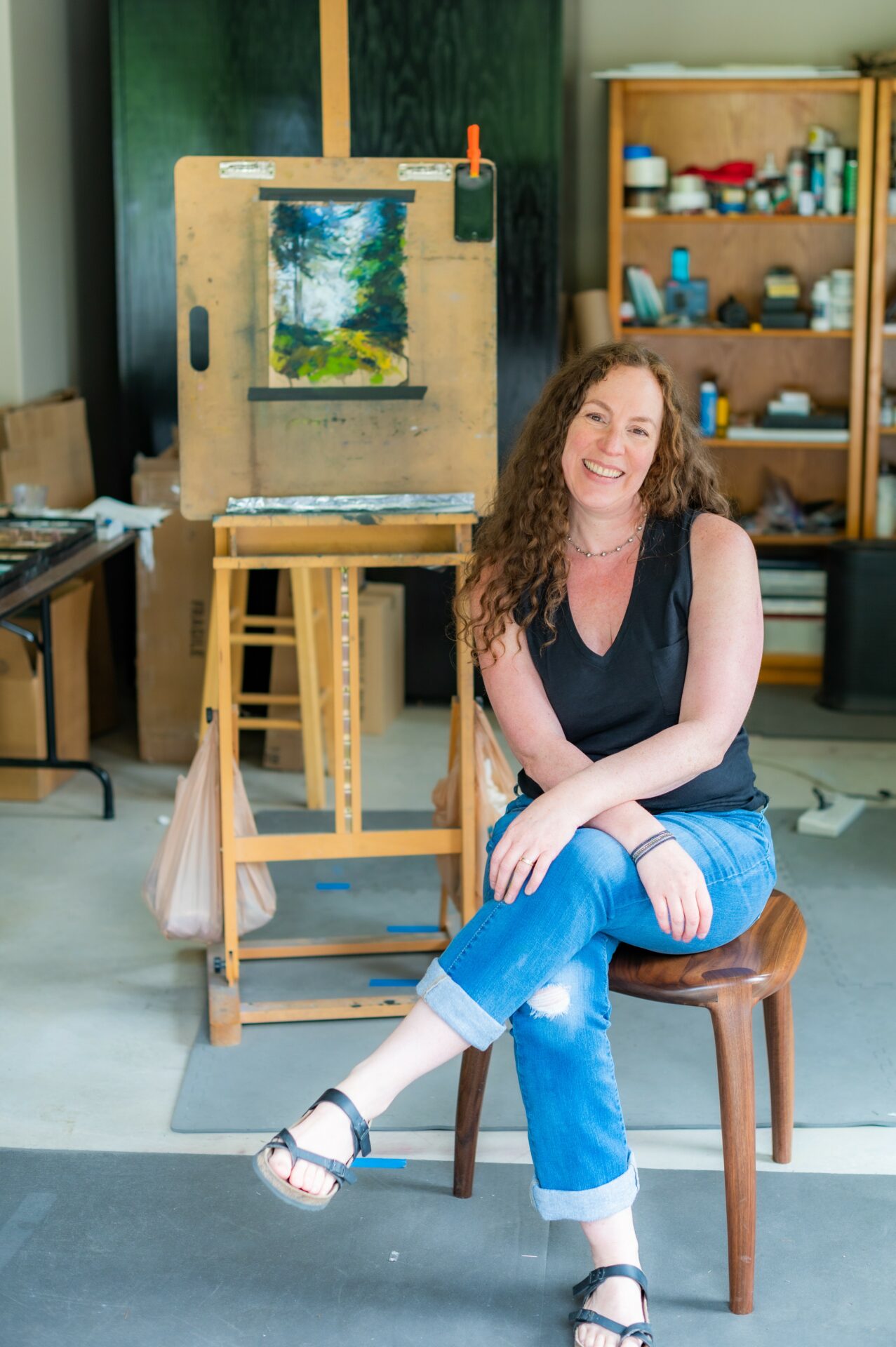
I think many creatives experience imposter syndrome at some point in their career. It’s difficult to pinpoint exactly why. Not having a formal education in the arts has certainly played a role for me in not feeling good enough from time to time. But becoming more engaged in the artistic community and realizing just how many successful artists don’t have formal educations helps me put it in perspective. Read more>>
Maria Esswein
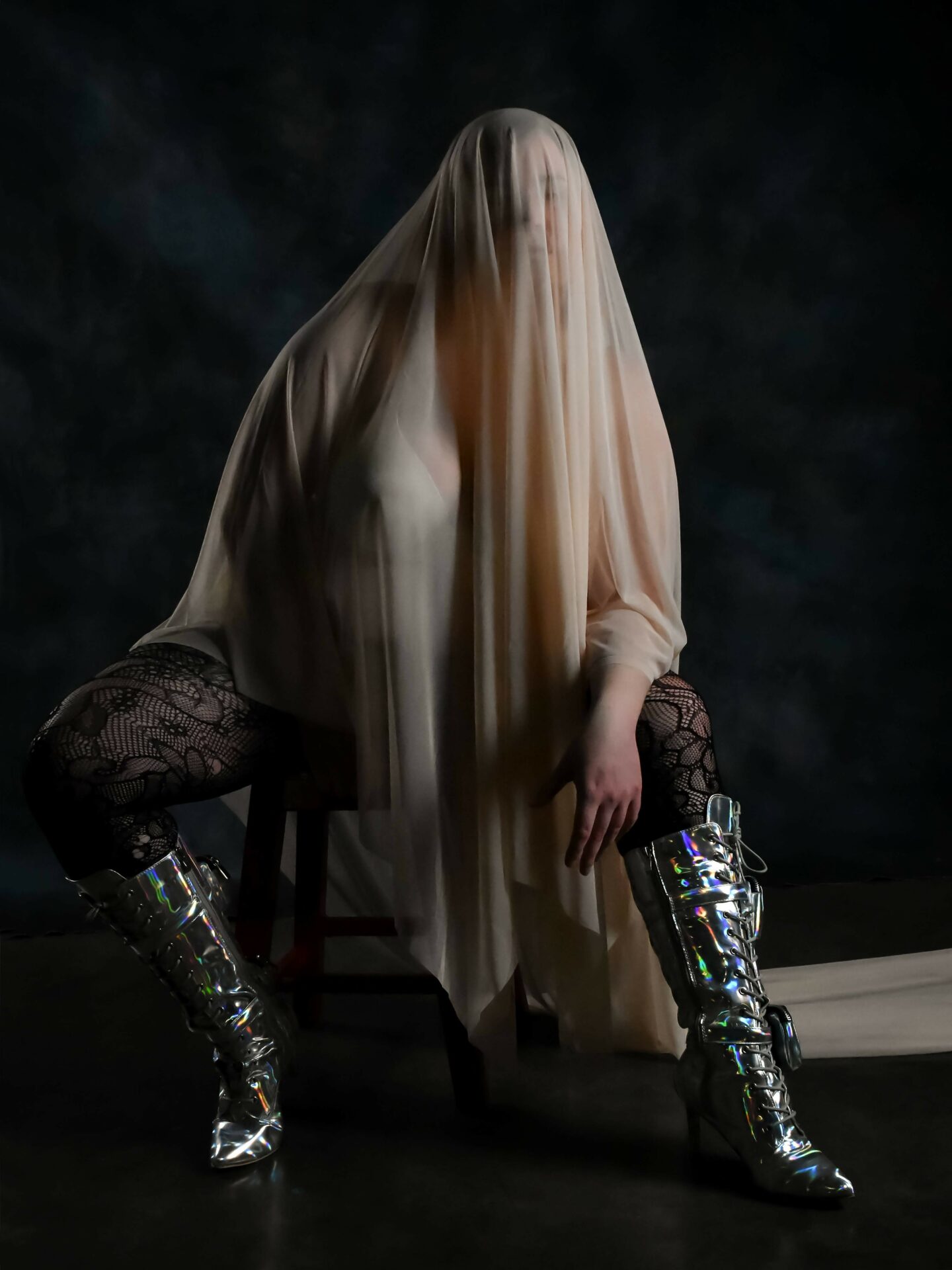
This is a tough one that I still struggle with from time to time. I think the more I talked about my work with others and explained it, the more comfortable and confident I became with myself. I did the research, created the work, and received the payoff through awards and exhibitions. I am doing something right. Read more>>
Pamela Nocerino

I didn’t. It’s actually a useful syndrome – kind of like a synonym for Beginner’s Mind. There’s wonder in it, even in self-doubt like “What do I think I’m doing here in this situation requiring so much of me?” There’s openness too, like looking at the opportunity as a chance to learn and grow, rather than be an expert. And of course, there’s the lack of preconceived ideas like WHAT and WHO, standing like sentries at the door of confidence. Read more>>
Teresa Pante
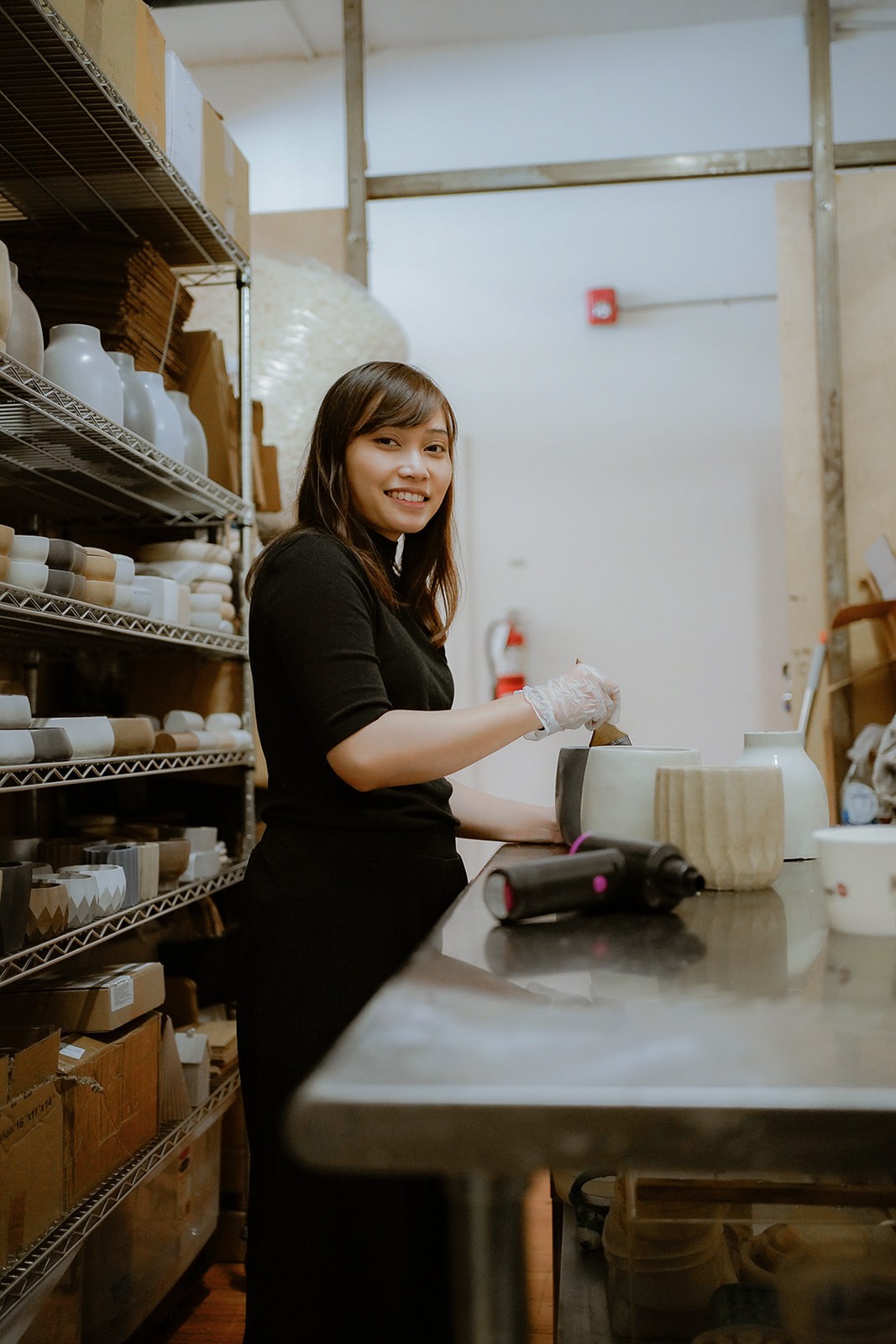
There was an instagram reel that stuck out to me and it had a message about no matter what you try to do or how bad you feel about doing something risky, the world keeps spinning and life goes on. If I make a mistake or I feel my skills are lacking, the only way to overcome it is to do my best and try to live my life without regrets. Being present and surrounding myself with close friends also comforts me. Read more>>
Amy Twomey
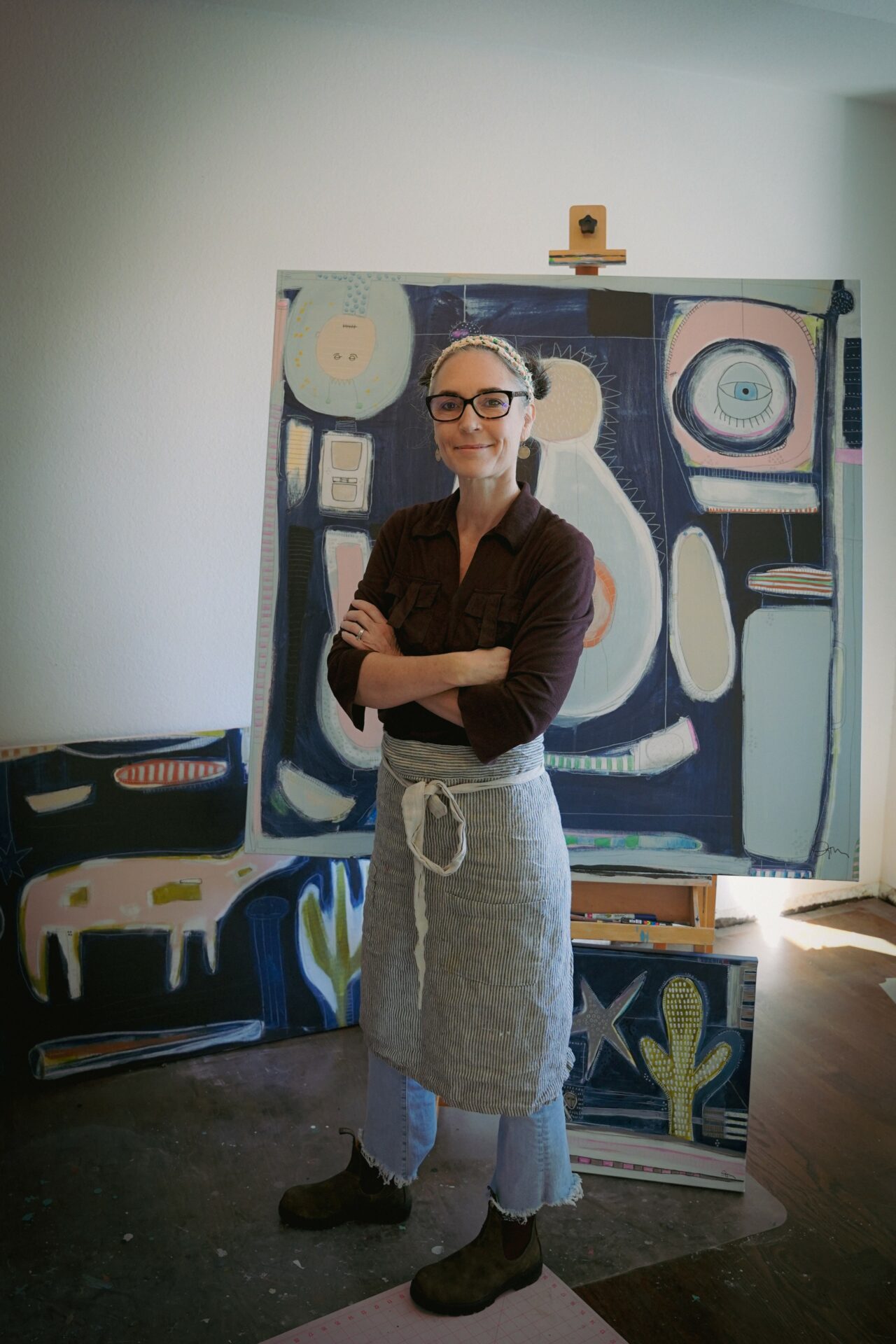
Like many artists, I battled imposter syndrome for decades, constantly feeling inadequate and comparing myself unfavorably to others. Even as I pursued my passion at The School of The Art Institute of Chicago, I couldn’t shake the nagging feeling that I didn’t belong among such talented peers. If only I could go back and talk to my younger self; the things I would say! Read more>>
Kellie Peach Nash

That’s a very funny question in some ways… I wonder if any of us ever overcome imposter syndrome forever! I really believe it comes and goes, but I see what I have accomplished in my life, and it tells me to CONTINUE ON. I guess you could say, I just KEEP GOING, KEEP DOING, KEEP BELIEVING. My community is always supporting me and putting steam behind me. Read more>>
Kristin Francis
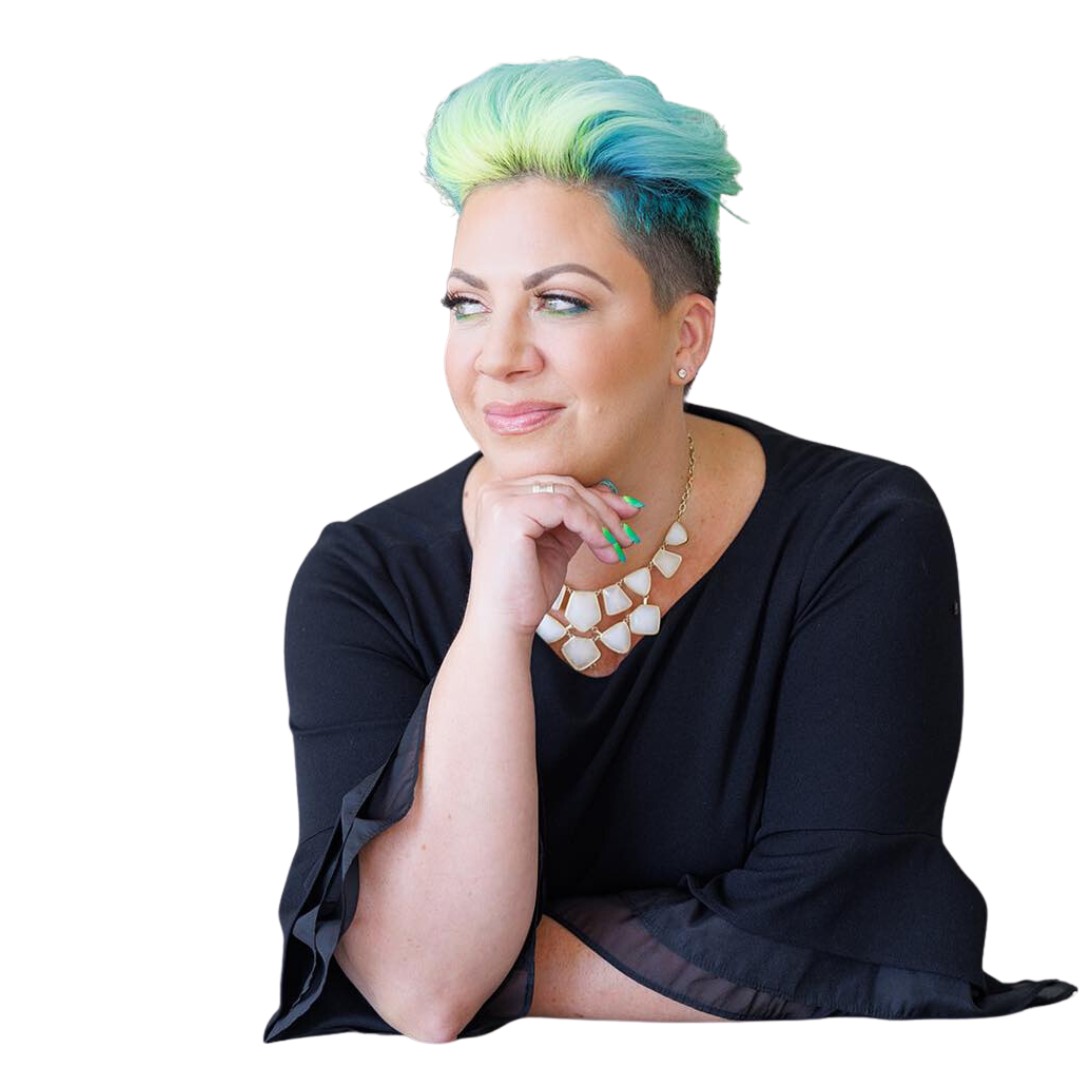
I grew up poor. Because we had 6 kids on a one military income household, my parents taught us we were “less than” and would never be like “them”. We would never have what they have and everything would be harder for us. Read more>>
Maggie Giles

I think when you realize that all successful people suffer from some form of imposter syndrome it’s a lot easier to embrace and get over. I will say positive reviews and my “hype” team are a huge help in overcoming those days where I feel like my writing isn’t worth the world’s time. Read more>>
Jason McElweenie

I don’t know if I’ve ever overcome imposter syndrome but I do recognize it when it happens. In the past I had a lot misgivings about my skills and self-worth. As I get older I know what I can do and how I can use my skills to my advantage. As I said, I don’t think I’ll ever overcome it but I’m able to see it when it happens. Read more>>
Meaghan Semple
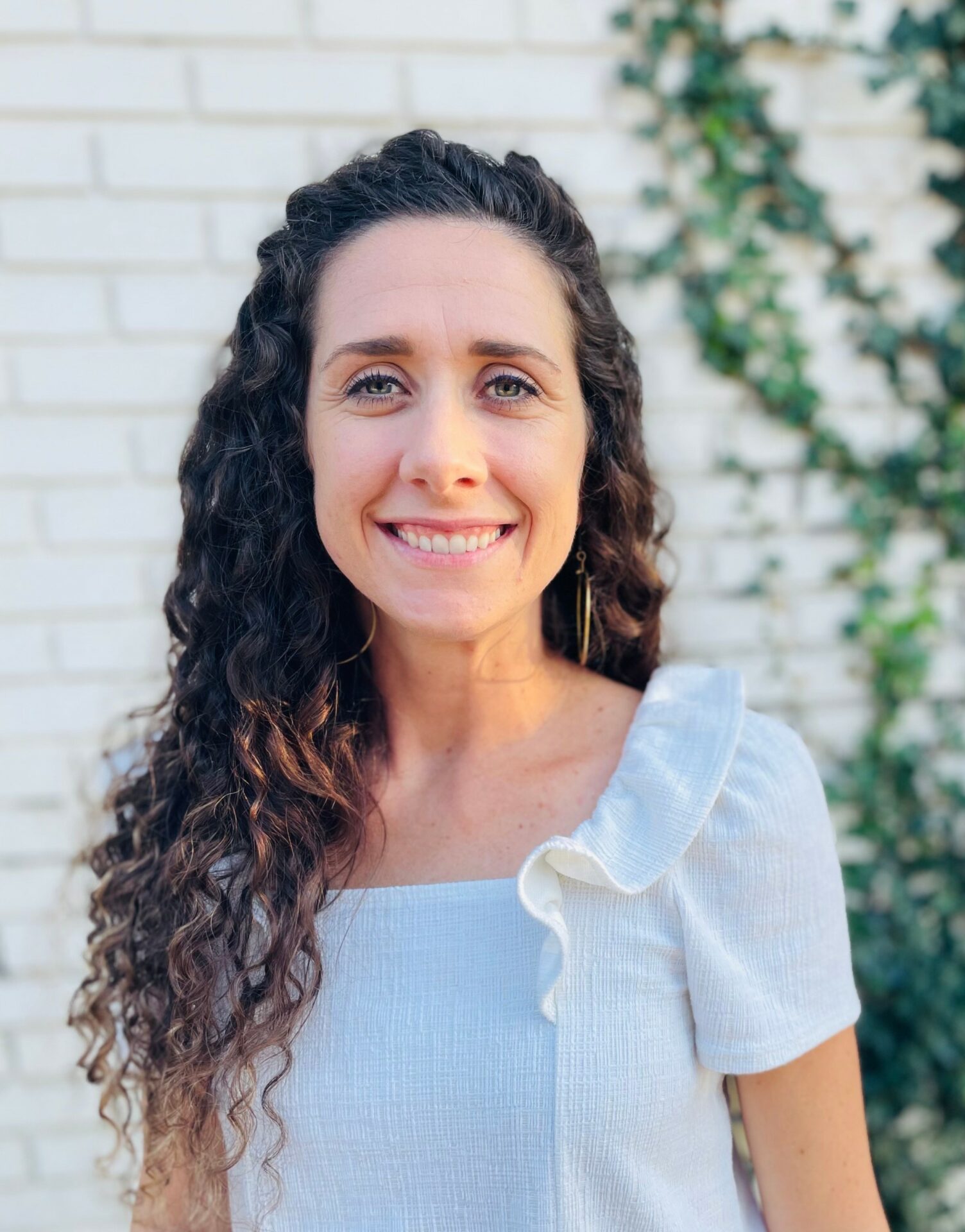
I don’t know if I will ever “overcome” imposter syndrome. It’s not that I think I am a fraud or ill-equipped all of the time, but sometimes I dip my toe into that pool of wondering if I really, truly know what I am doing. In grad school, I had a professor once share about his early days of being a counseling intern. In one of his first sessions he realized that his client was looking at him, after sharing much of their distress, wondering how my former professor was going to respond. Read more>>
Corie Campbell

Imposter Syndrome is so real. I love this question because it implies that I have overcome it – haha. I think we need to normalize that in some ways people always have a piece of it. There will always be someone out there who knows more than you do, or is doing more or better than you. But that can’t take away what you know or how well you are doing or how what you are doing impacts others. Read more>>
Patricia Kluwe Derderian
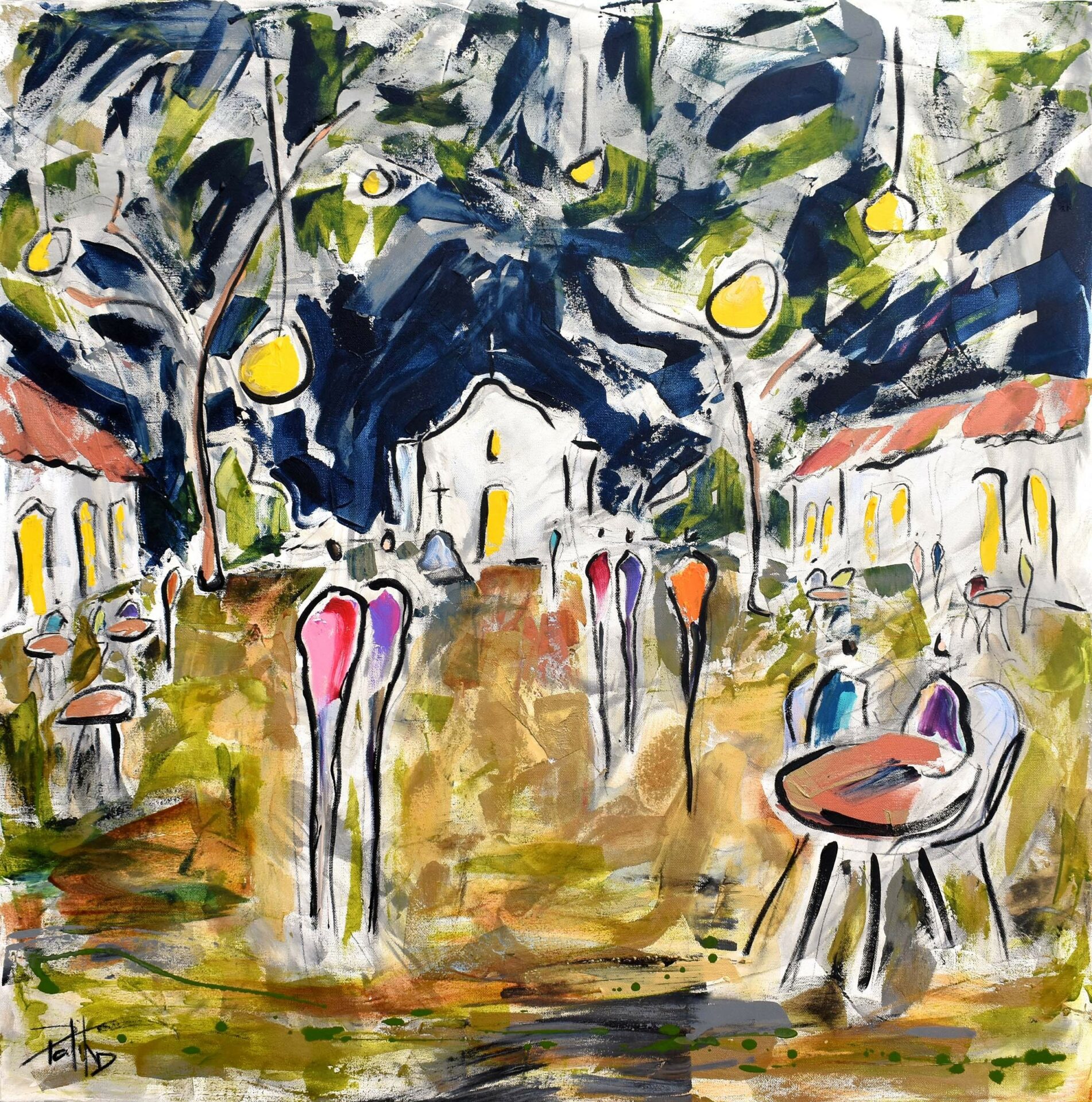
I think I am always trying to overcome that. Working as a professional artist is something I have always wanted to do but I had no idea that I was able to. I never felt good enough for anything as I was always chasing perfection until one day, I just got tired of it. Just like that, I had reached the end of my own patience with myself. I realized perfection in most cases (there are always exceptions) is not what we are looking for and it is counterproductive. Read more>>
MARLENE CARSON

In the intricacies of my professional and personal life, I found myself emmeshed in the web of Imposter Syndrome. Its long, foreboding threads wove through the fabric of my existence, a relentless companion that whispered doubts about my competence and accomplishments. Read more>>
Larissa Gregory
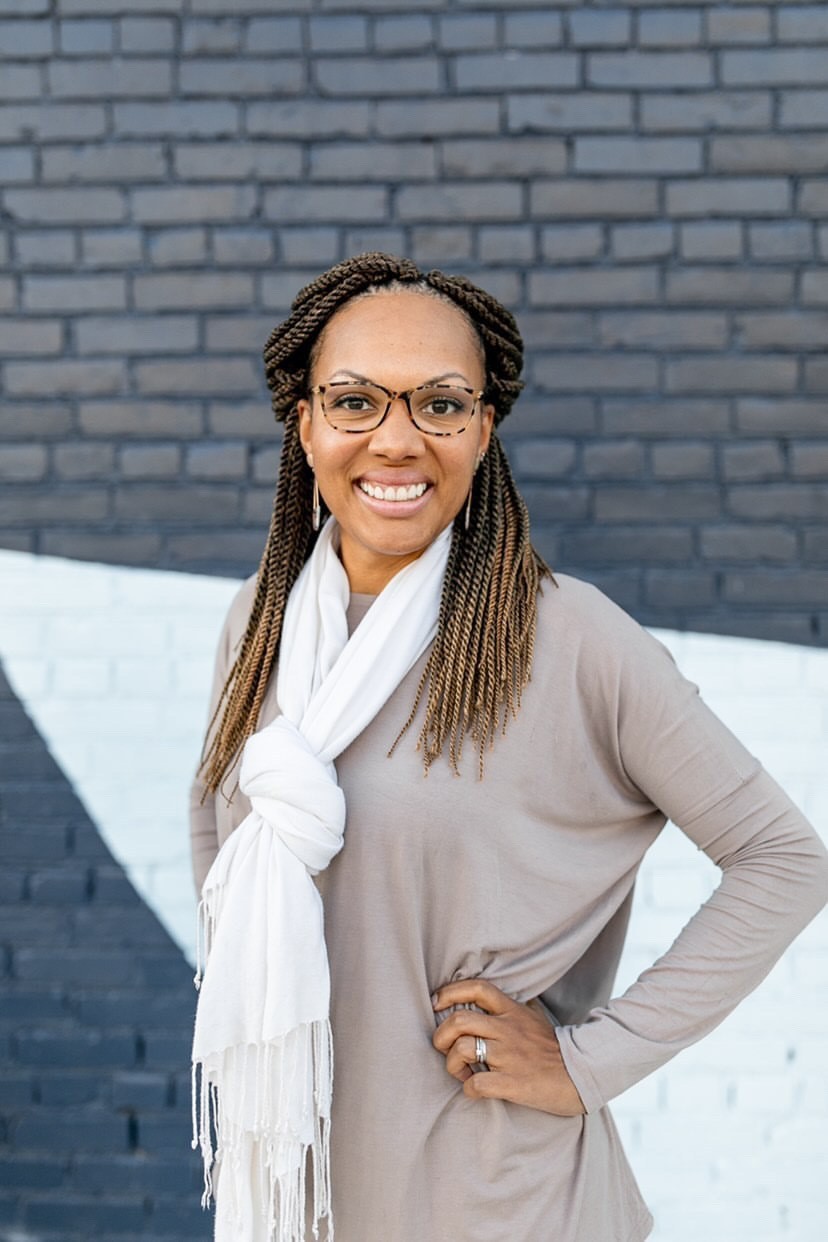
Overcoming imposter syndrome is an ongoing journey for me. While I haven’t completely conquered it, I am actively working towards that goal by authentically engaging with my true self and understanding who my people are. Embracing authenticity involves recognizing and appreciating the aspects of myself that I love, as well as acknowledging the areas where I am still growing. It’s about accepting that I am a work in progress, and that’s okay. Read more>>
Sophie Pearson

I often look at my follower count and don’t understand how it got there. Sometimes I scroll back to old posts that did particularly well on social media, just to check the likes, and make sure my memory isn’t failing me. My art is so personal to me- every single piece holds such a strong place in my heart, and to see that other folks connect with it in such tremendous ways sometimes doesn’t feel real. Read more>>
Sahily Picon
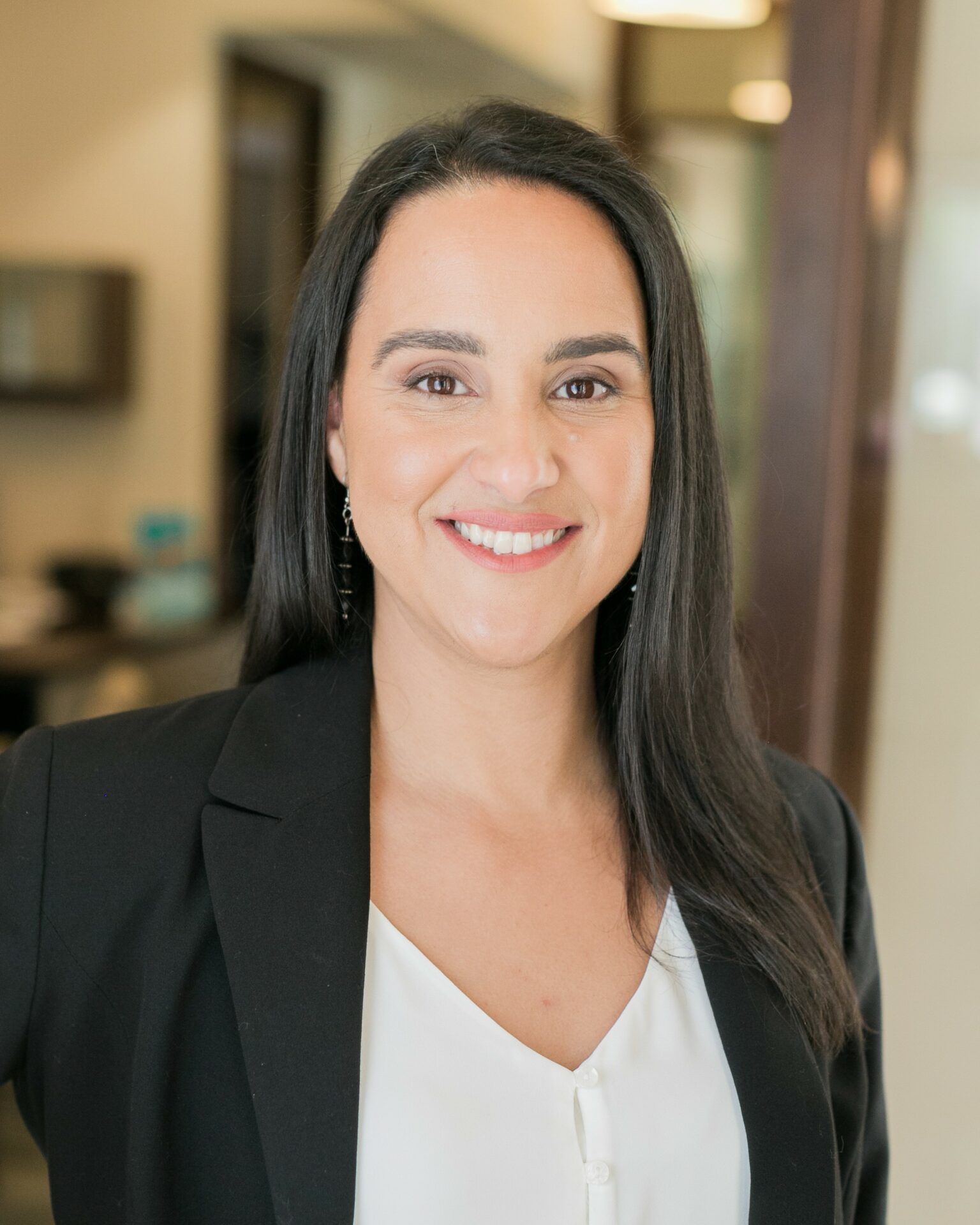
Honestly, I have not overcome it. Instead, I’ve learned to coexist with it and not let it stop me. The reality is, this feeling doesn’t just go away as you reach your goals because goals are a moving target. In my experience, each new level of achievement brings its own set of challenges and unfamiliar territories, which naturally triggers these feelings of doubt and inadequacy. Read more>>
Meagan Condon

When I first began writing about fiber arts for Ply magazine, I found myself prey to imposter syndrome. I wrote article after article, but every time I turned one in to the editors, I panicked that they’d realize I don’t know what I’m talking about. Waiting for a response to every submission had my mind telling me they were losing confidence in me. Read more>>
Tara Watkins
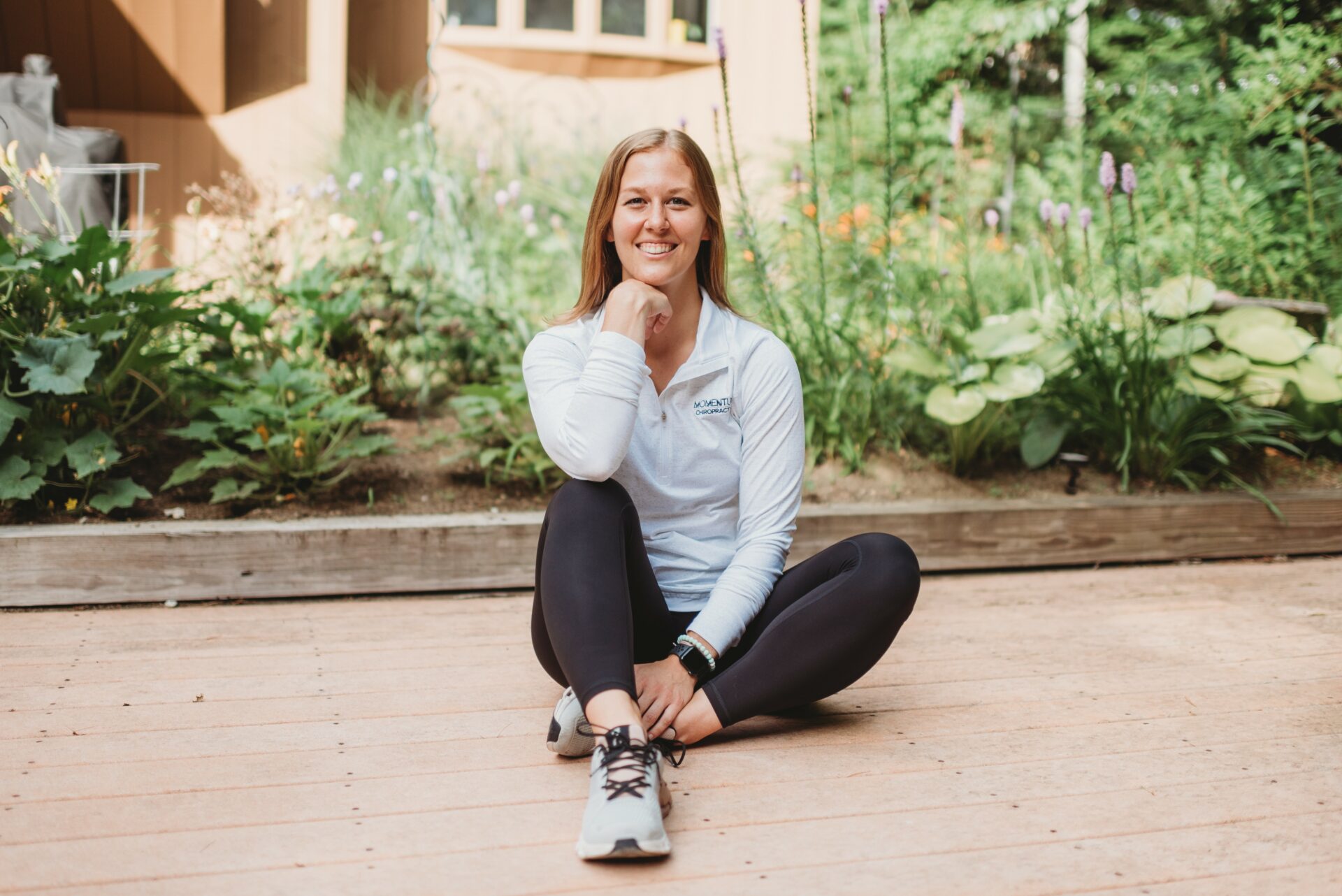
By starting my own business. It essentially came down to, “I’m the only one who is going to make this happen, so let’s do it.” I’ve never given myself enough credit in being capable of being able to do things like starting a business from scratch, successfully managing and running it. I started out my chiropractic career as a lead doctor in a franchise owned and ran by a businessman. Read more>>
Marie Belle Pérez Rivera

A big part of this process is confronting imposter syndrome. There are so many talented people in this community, it is easy to fall into the trap of comparison. The most useful practice that has helped me with this is to keep doing the work, invest in yourself daily, put in the hours. I know that my practice is its own currency and no matter what other people are doing or not doing, I can rely and trust that my practice, embodiment, and integration will speak for itself. Read more>>
Jamie Jackson

I do not think I will ever overcome imposter syndrome. Everyday can be an internal struggle. But here are a few things that help me combat imposter syndrome. Take a moment each day or week or even month to reflect on what you have accomplished. Write it down – keep a running list of your wins. Read more>>
Allegra Fox
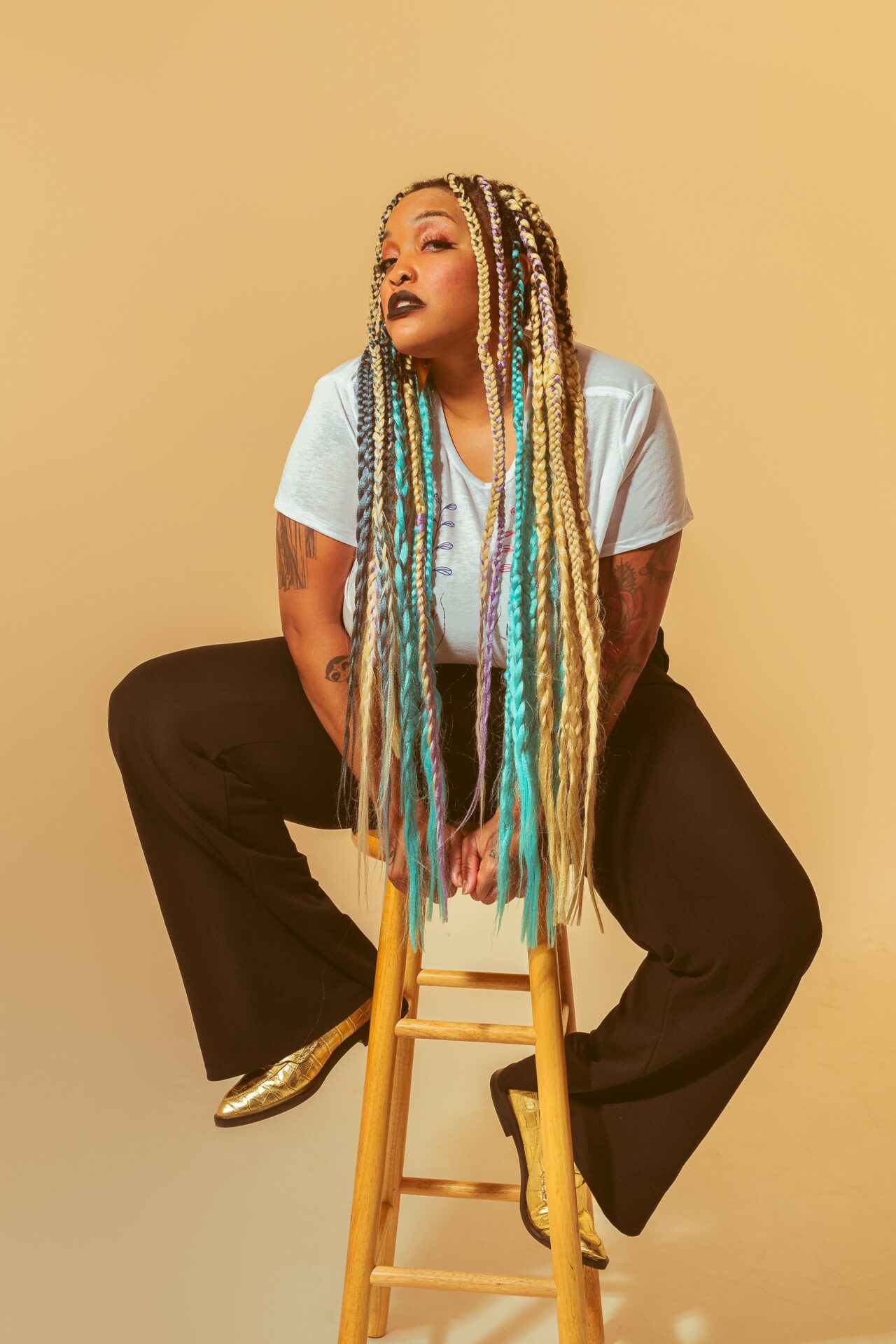
Everything happens for a reason I believe. It’s scary, I’ve been in rooms that I didnt feel like I was suppose to be there and its easy to get in your head about it all. Then I remember , I am in the room , Ive done something to get here and I belong here like everyone else. Thats how I have worked though that in the past. Read more>>
Ashley Bryant
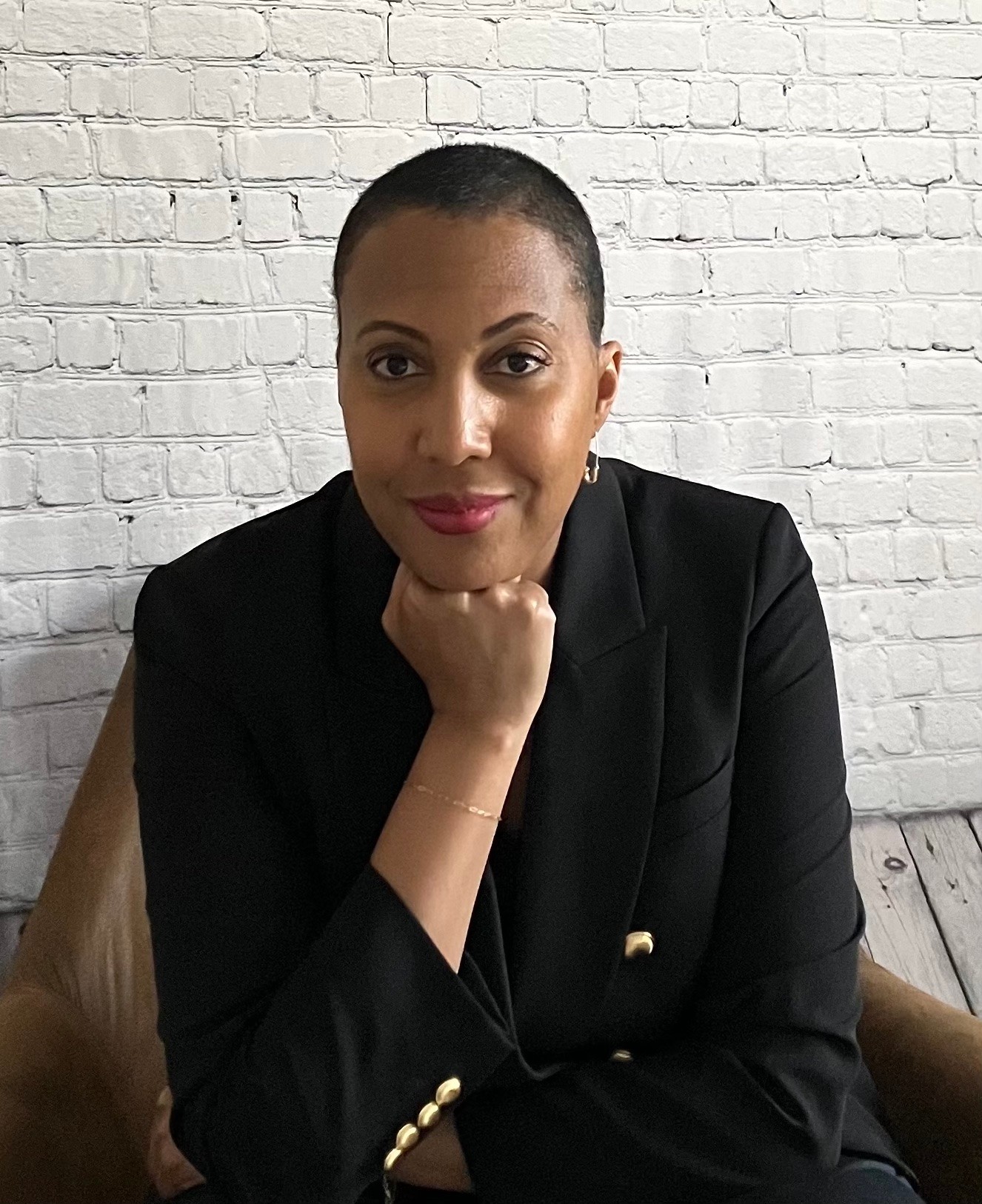
I have an imposter jar next to my desk. Anytime I’m feeling down or like “Who am I to be doing this?” I pull out an activity from the jar to help remind me who I am. The activities range from Being my alter-ego to getting my favorite treat. Read more>>
Mimo Magri

I think remembering there’s only one you (me) makes a huge difference in the journey. There’s nobody able to replicate or bring to the world the same exact flavor and essence you bring. I also think that every great artist has those moments of doubts while learning and practicing their craft. Sometimes we get stuck in overthinking instead of simply doing and getting the creative flow moving through the body. Read more>>
Vanessa Zapata
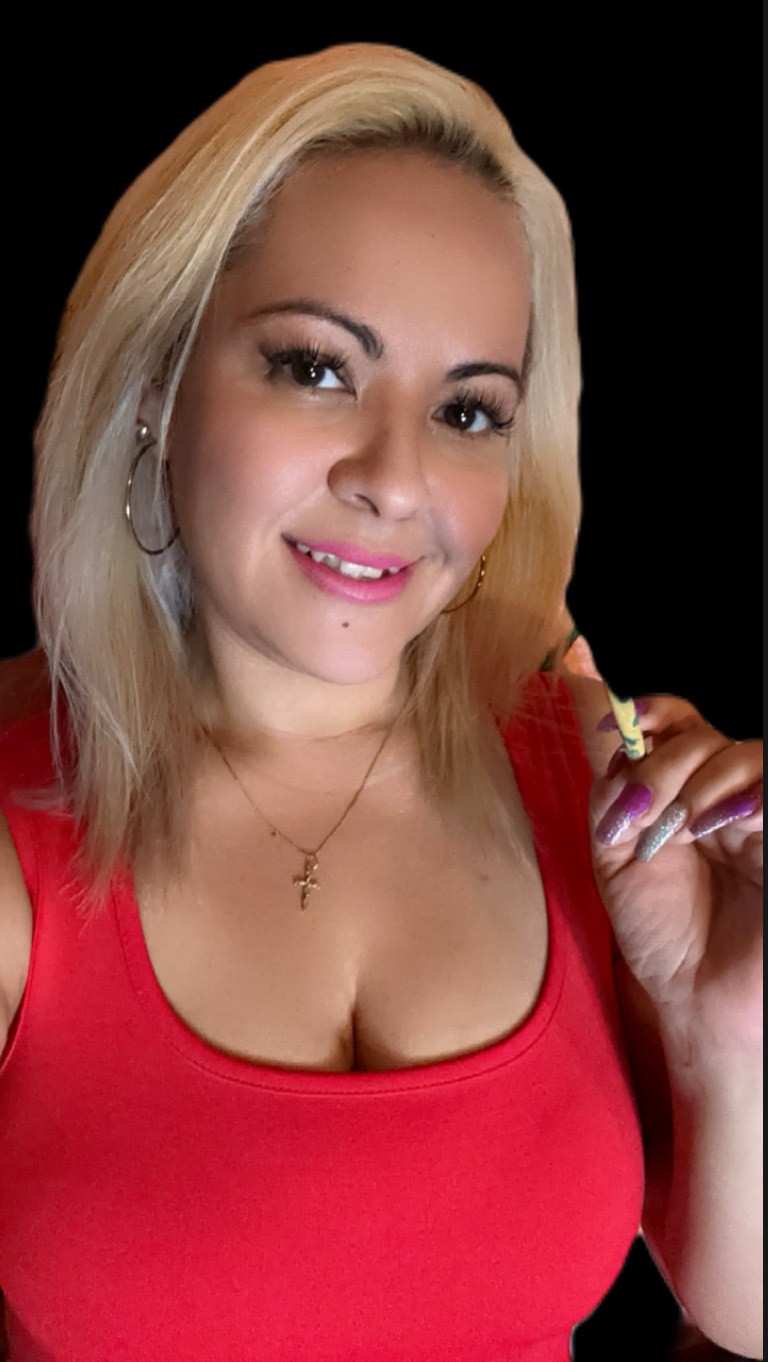
How I overcame imposter syndrome is I didn’t let the opinions of people influence me. I remain positive verse letting the anxiety hit me. I always would tell myself if I didn’t sell then at least I got the exposure from the event. Also, I would connect with other artists at events or exhibits which helps with feeling alone or anxious. Read more>>
Malia Sias
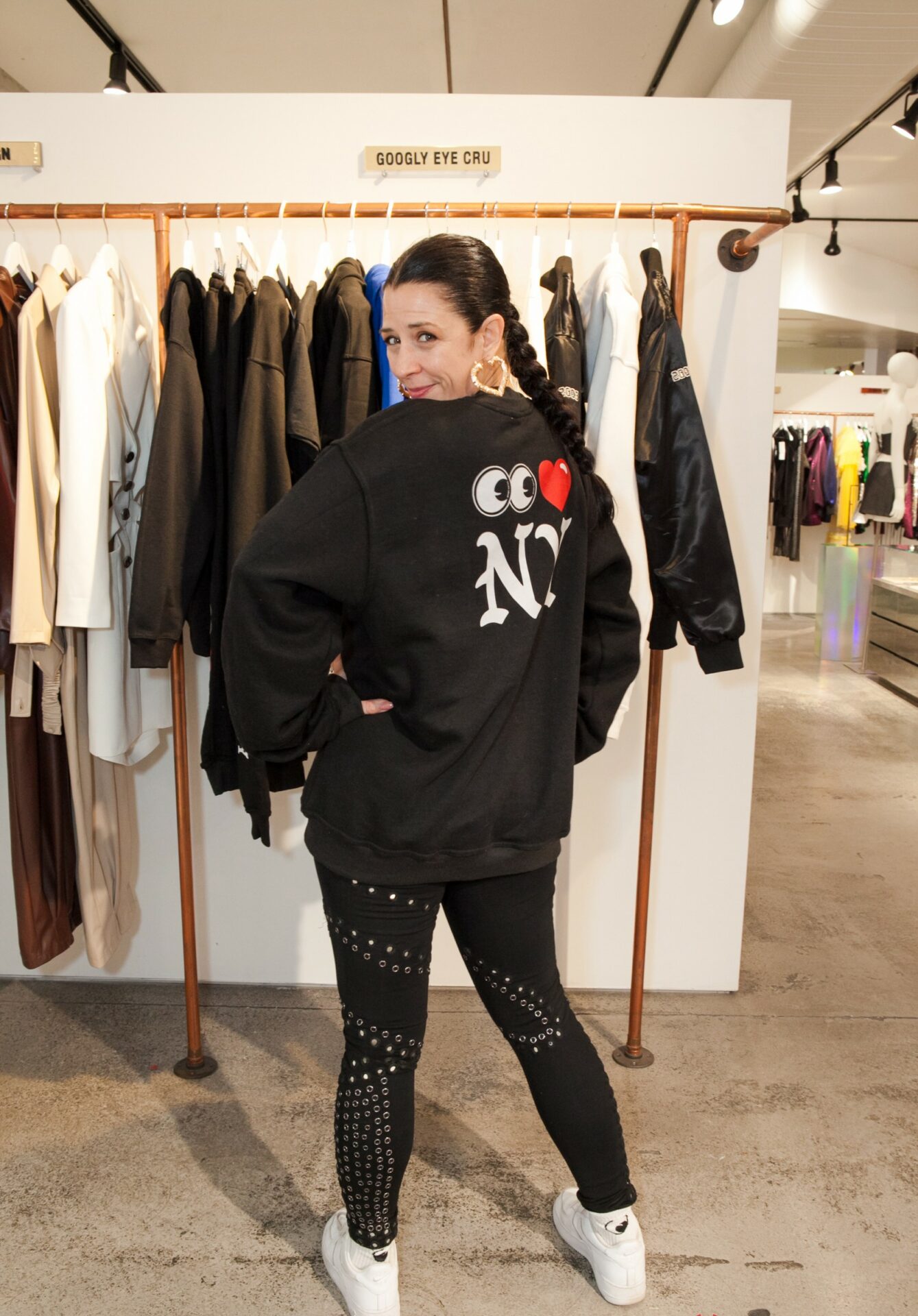
Who said I’ve overcome it? I experience it in everything I do. I’m not mad at this emotion though. I think it stems from the respect for all the many talented people I’ve come into contact with or have learned from. For example. Can I do graphics? Sure. I’m good at creating assets or manipulating graphics. Read more>>
Kim Ward
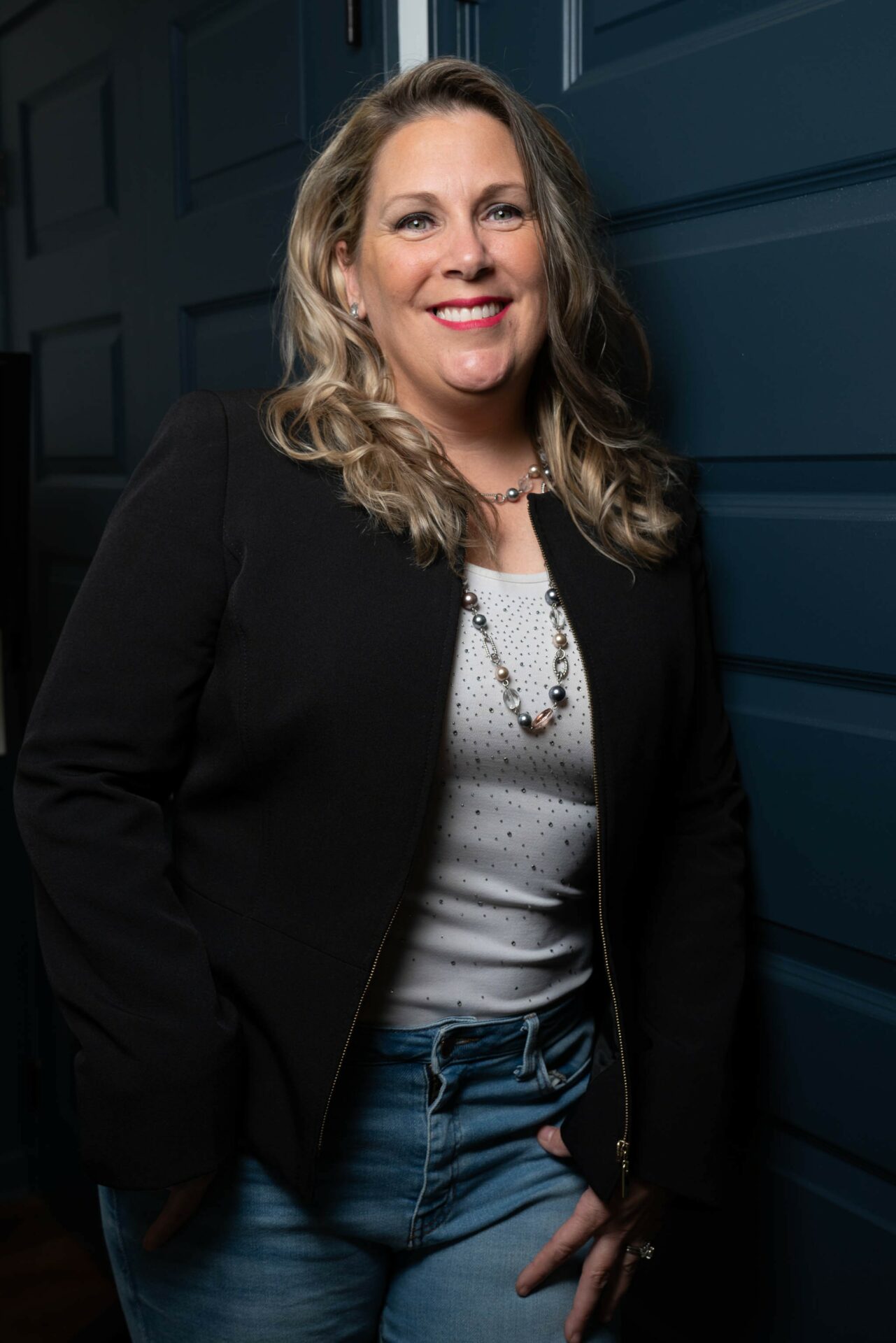
I absolutely love this question! When my entrepreneurial journey started I felt like I had to pretend to be something bigger, better and more successful than what I truly was. I did that for a while and I quickly found that it was exhausting. Not only was I spending money that I didn’t have just so I could “flash” it to “keep up with the jones” but my energy was so low due to the stress I was causing myself from being “on” all of the time. Read more>>
Daniela Perez-Reyes
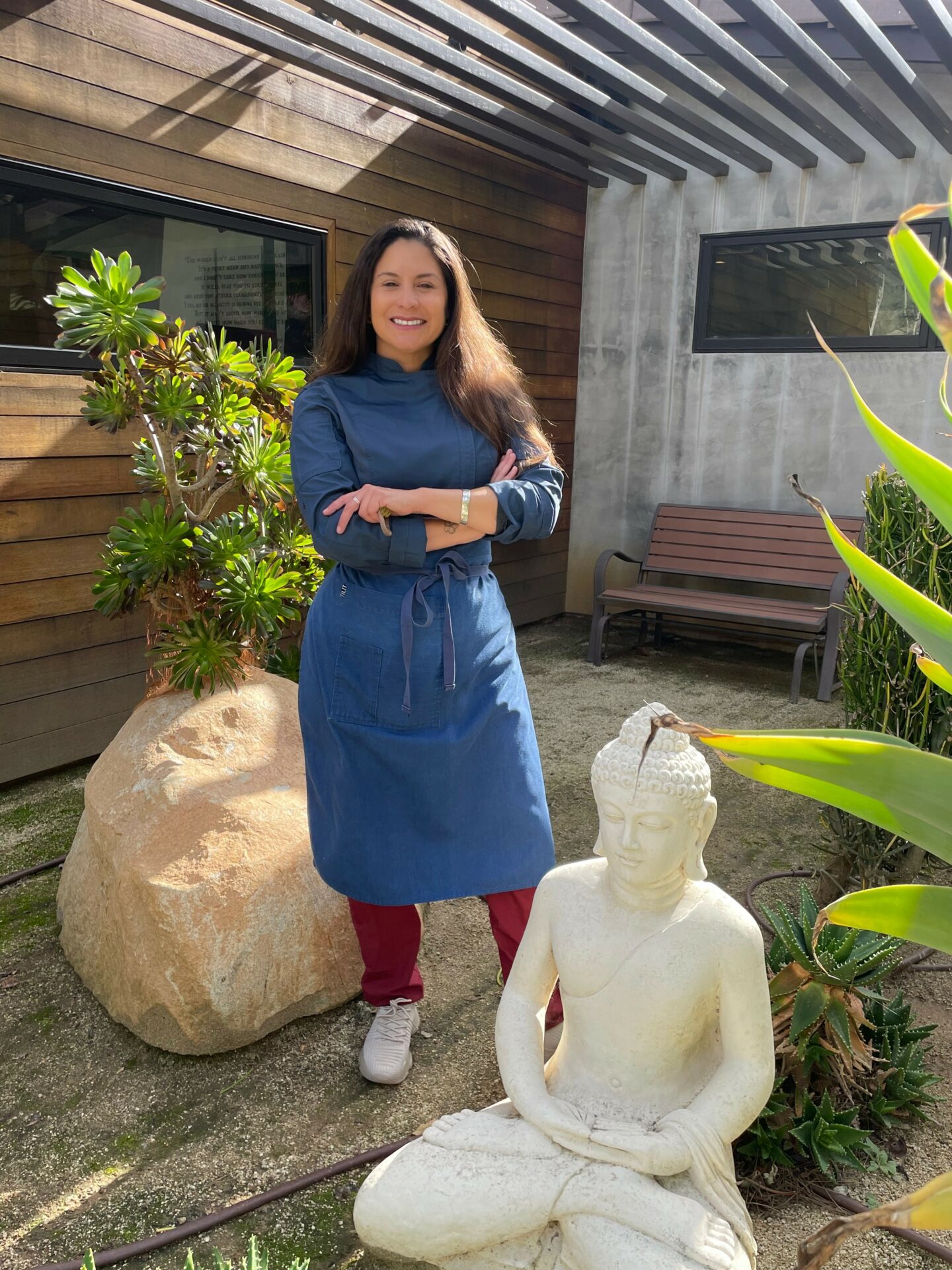
I feel that in Bussiness you are constantly overcoming imposter syndrome. If you are an entrepreneur you will face this feeling again an again. However , one has to be able to look back into reality and stop the that narrative in you head. Realized how far you have come , look back into your experience and into all the work that you have done to be be where you are at right now. Read more>>
Dave Tada

This is something that I still struggle with to this day. Though I believe having a small degree of it, at least as you’re coming up, can help push you and stop you from becoming complacent. I experienced that complacency when I was working full time as an in-house photographer for a local clothing brand. There was no struggle and I really became too comfortable with my work situation. Read more>>
Dana Mooney

When I post to social media, I always stay honest and down to earth. I never want to be seen as bragging, unobtainable or out of touch. I know how hard each art sale is and I never take for granted the clients that support me. I know that my work is original and holds value emotionally as well as financially, and for those reasons if I ever feel imposter syndrome coming on I just know that what I am doing is true and the journey is always an uphill climb. Read more>>
Anne M. Smith-Nochasak

Imposter syndrome is not so much overcome as managed. It was one thing to be busily scribbling in my binder, relaxing by the lakeshore with no one around for miles, and quite another to be standing in front of an audience, published book in hand, reading aloud treasured passages while those present chatted among themselves. In the first scenario, I was myself, writing; in the second, I was claiming to be an author, who was somehow worthy of being heard. Read more>>
Stacey Rowland

This is a great question. But it’s not really about overcoming imposter syndrome, it’s about working with imposter syndrome. I think of imposter syndrome as the nasty little side effect of having success. Imagine you’ve achieved something significant, but that nagging voice in your head dismisses it as luck. Or you compare your achievements with those of other people and you start to question yourself and your abilities. Read more>>
Diane Kopelakis
Years ago I heard someone on the news speaking about “imposter syndrome.” I finally realized that that was it! That’s what I had! I just didn’t know how to describe it to anyone. Not that labeling something makes it okay or not but just realizing that I wasn’t crazy or alone was a huge relief. Read more>>




